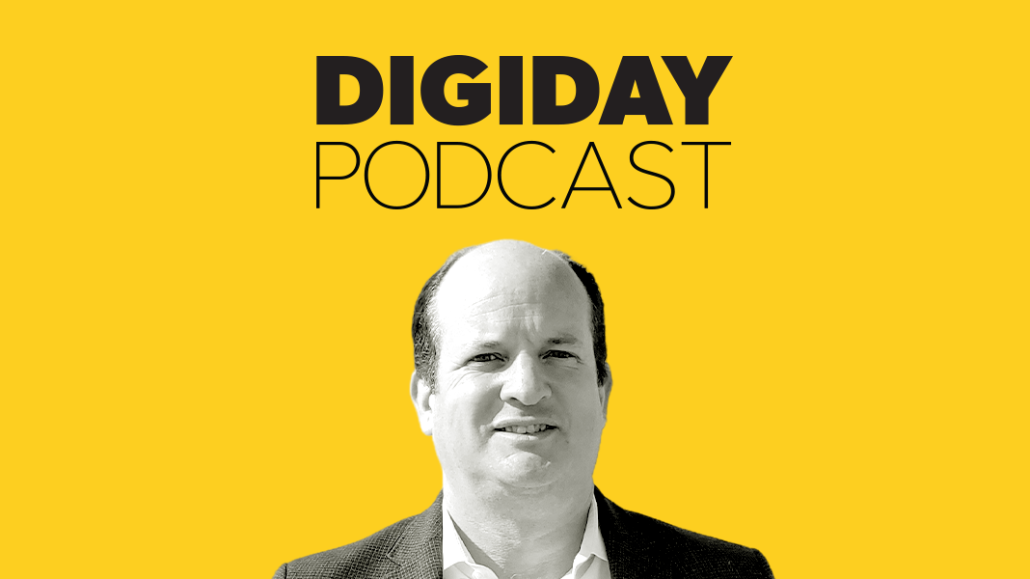Secure your place at the Digiday Media Buying Summit in Nashville, March 2-4
Atlas Obscura redefines ‘exploration’ after pandemic upturned coverage areas

Travel, to no surprise, was one of the largest industries impacted by the pandemic and publishers like Atlas Obscura that cover exploration, wanderlust and gastronomy had to quickly adapt and figure out both what content output and brand deals would like in this new reality.
Luckily for Atlas Obscura, the concept of exploration meant more than its tourism and trip-planning business, which accounted for about half of the company’s revenue in 2019. In the latest episode of the Digiday Podcast, CEO Warren Webster talked about how his team adapted exploration to mean everything from learning about new subjects or trying out new skills from experts online in a new courses business, as well as leaning into the road trip model for discovering a new place.
And while some travel-related advertisers had to pull back on spending, others in the auto and food categories filled the gaps and Atlas Obscura walked away from 2020 in a strong position, Webster said, though he did not provide exact figures. Now as travel is slowly returning, the company is bringing back some of its paused 2019 revenue streams and adding its successful 2020 innovations to build toward a successful year.
Of course, some hesitations still loom around the coronavirus variants, but Webster said that both his team and advertisers are optimistic and eager to get back into in-person experiential events and programming.
Below are highlights from the conversation that have been lightly edited for length and clarity.
New definitions of exploration
We are in the travel business, however, we’re really about exploration and exploration can happen anywhere. You can travel halfway around the world or you could explore in your backyard or take a road trip. That really helped us because going back to March 2020, obviously, our far-flung trips all had to come back and we pulled all our travelers back to the U.S. as quickly as possible. We essentially closed our trips business for the time being and we really started focusing on what can we do to satisfy the curiosity of our readers, our community, while they’re stuck at home. We launched an initiative called Wonder-From-Home. We’re a media company, plus we’re a trip operator and an experience company. So while we couldn’t operate the trips, we still had a lot to do with our media business and ended up having, in some ways, the most successful year we’ve ever had. We more than doubled our brand partnerships, revenue 2020 over 2019.
Hard hit categories are coming back into the mix
It’s often assumed that our endemic advertiser is a travel company, but because we touch on so many things — exploration can mean exploration into food exploration, into places, into people, into history and culture — we cover sort of a wide swath, so we weren’t necessarily completely tied to travel partners. But one of our favorite categories in the catalog and the groups that we really have a lot of love for, because we’re all sort of in the same in the same boat, are DMOs. So all the different destination marketing organizations, the tourism bureaus, the the organizations that help destinations succeed, through tourism. We definitely saw those have to sort of hunker down over the last year, and it’s very exciting to see them coming back now, both domestically and around the world. We’re doing a lot of work with DMOs ranging from cities to the whole countries and regions.
In some cases we’ve seen an increase in spend. In some cases, they’ve had to hold back a bit. Overall, I would say what they’re realizing is what we’re seeing, where we have this community of millions of travelers who are explorers who are ready to go on that road trip or go on that trip overseas and these DMOs want to be the ones that are thought at first. So in some cases, we’re seeing a big increase from prior spend.
Modifying the experience business for virtual
In addition to our trips business, we had our experiences business, which was instead of getting on a plane and going somewhere halfway around the world, just spending a couple hours, doing a fun activity, or learning a new skill, or taking a tour of something cool and hidden and unusual. And we had hundreds of these things running and we also had to stop obviously doing the in-person version of those. We looked at the types of programming that we could take from that and the instructors or the hosts, and turn them into online versions. We found that actually, we could just host so many more people on the online versions of these things that there was a big appetite for them when people couldn’t get out and do these activities on their own. And we launched a new product called courses that is more than just that couple hours doing an activity; it’s really digging into a subject. We have a bunch of those running and so far we’ve had about 5,000 people go through our courses.
More in Media

Media Briefing: Turning scraped content into paid assets — Amazon and Microsoft build AI marketplaces
Amazon plans an AI content marketplace to join Microsoft’s efforts and pay publishers — but it relies on AI com stop scraping for free.

Overheard at the Digiday AI Marketing Strategies event
Marketers, brands, and tech companies chat in-person at Digiday’s AI Marketing Strategies event about internal friction, how best to use AI tools, and more.

Digiday+ Research: Dow Jones, Business Insider and other publishers on AI-driven search
This report explores how publishers are navigating search as AI reshapes how people access information and how publishers monetize content.








